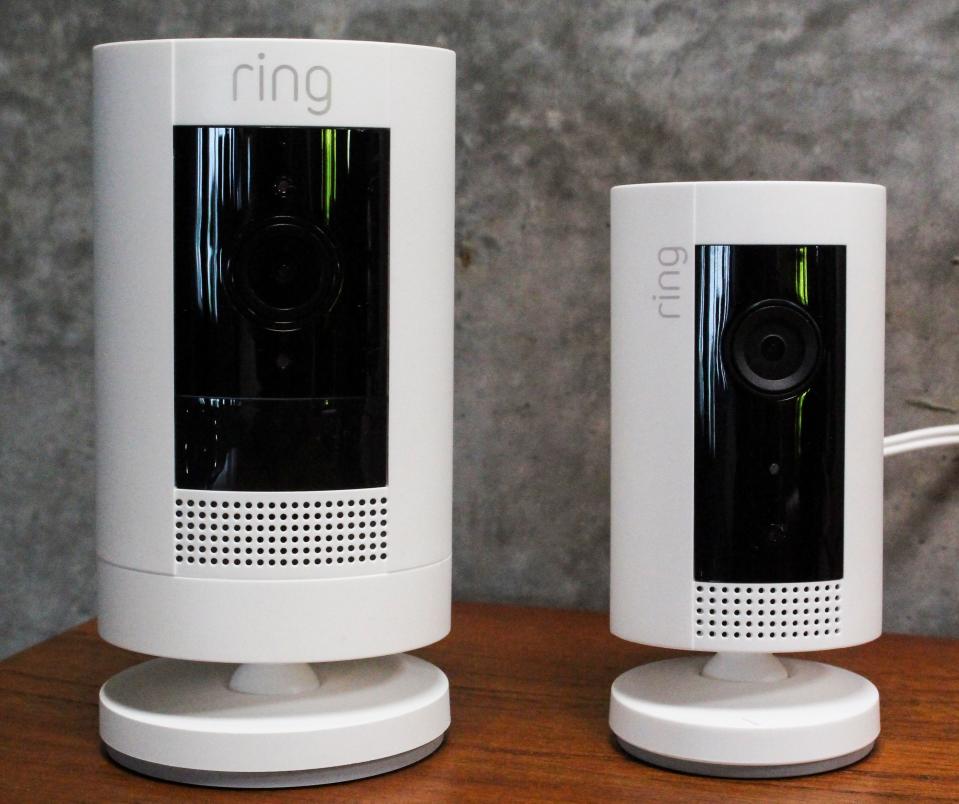'A precious asset': How to protect your smart home devices from getting hacked
In December, Amazon (AMZN) and its Ring unit were hit with a proposed class action lawsuit claiming its home security cameras were vulnerable to hackers — a particularly disturbing proposition for all users and particularly for those with small children.
The lawsuit came after a number of reports that the devices could be hacked, including one report that someone hacked a family’s Ring camera and harassed their 8-year-old daughter.
“At Ring, our top priority is the safety and security of our customers,” a spokesperson for the company told Yahoo Finance. “We understand that Ring users put their trust in our products, and we strive to maintain that trust. While we do not comment on ongoing litigation, it is important to note that we have found no evidence that Ring’s systems or network were compromised.”
The allegations still raise the possibility that bad actors could spy on consumers through smart home devices, which are becoming increasingly prevalent as Americans’ homes become more connected.
“The problem is that 4 billion devices are getting connected to the internet as we speak. There's going to be one trillion devices by the year 2030,” Carlos Moreira CEO of WiseKey (WKEY), a global cybersecurity company, told Yahoo Finance’s On The Move last week.
And that one device a hacker gets into could be a gateway to your entire “digital identity,” according to Moreira. “Once a hacker gets into anything in your house through your Wi-Fi, and can decrypt your digital identity, they can access all of your content,” he said. “They can access your computers, your camera, your fridge, whatever you [have] connected to the internet.”

So, what’s the best way to ensure your devices don’t get hacked? Moreira identified “encryption” as the No. 1 way to secure yourself from hackers, which essentially means converting sensitive information into code to ensure outsiders can’t access it. You should, for example, enable encryption on your Wi-Fi router. Companies like WiseKey also offer apps that you can download to use encryption to make it more difficult for hackers to breach devices.
Another key to ensuring your devices are kept secure is to regularly change your usernames and passwords, and use two-factor authentication when available. It’s also unwise to use the same username and passwords across multiple websites and apps. Doing so simply makes it easier for attackers to gain access to more of your data if they’re able to crack your login.
“If you don't protect your identity, somebody else is taking it already from you. This is a precious asset. Identity is money. Identity has a huge value on the internet if you sell it in the dark web. So not protecting your digital identity is the number one reason why hackers are able to access you,” Moreira warned.
When it comes to your smart home devices, the best place to start protecting yourself is at the router level. That’s because your router broadcasts a Wi-Fi signal to all nearby devices, making sure you can get online anywhere in your home.
But that signal can also reach as far as the street in front of your house or even your neighbors’ homes. And if you’ve got a weak username and password, like the default login information that came with your device, any attacker driving by or otherwise within range of your connection can easily gain access to your network. From there, they can do some serious damage, including accessing your personal files, or your connected cameras and speakers.
In addition to properly managing your usernames and passwords across devices and accounts, you’ll also want to ensure that any device you connect to the internet is always running the latest software updates. You can typically update your devices via their included apps, though you may need to check the manufacturer’s website in some instances.
With the latest updates applied, and a unique username and password for your devices, you’ll be far better defended against hackers and other attackers.
Dan Howley is tech editor for Yahoo Finance.
Yvette Killian is a producer for Yahoo Finance’s On The Move.
READ MORE:
Richard Branson: Virgin Galactic could send 'hundreds of thousands' of people into space
The coronavirus cruise ship problem: 'Every lost voyage' could cost $4 million in revenue
Her grandfather's recipe is the 'secret sauce' to this booming small business
Read the latest financial and business news from Yahoo Finance
Follow Yahoo Finance on Twitter, Facebook, Instagram, Flipboard, SmartNews, LinkedIn, YouTube, and reddit.
